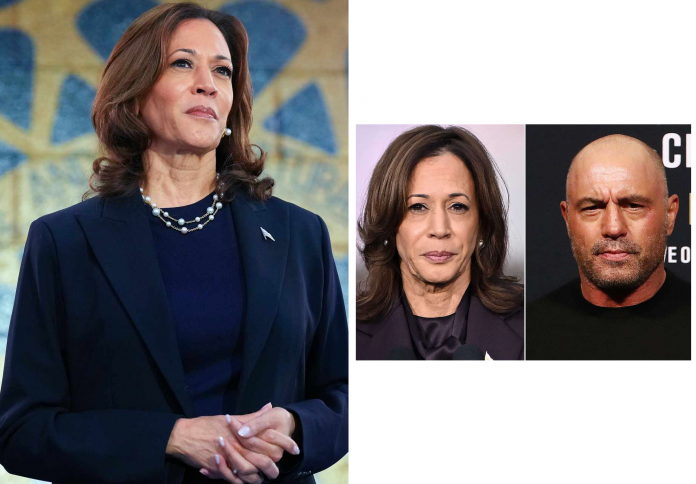In a surprising moment of reflection, former Vice President Kamala Harris revealed her regret over not appearing on The Joe Rogan Experience during her 2024 presidential campaign. Speaking on the “Diary of a CEO” podcast, Harris asserted that despite significant pushback from her inner circle, she personally “wanted to do Joe Rogan’s show.” She recognizes the immense power of podcasting as a crucial, often primary, source of information, particularly for the large audience of young, conservative men who tune into Rogan. While acknowledging that “a lot of games were being played” around the scheduling, Harris lamented the missed chance to directly engage with a critical segment of the electorate. Her perspective, which mirrored her controversial decision to appear on Fox News, was rooted in a belief that she could bypass perceived media bias to make her case to open-minded listeners—a strategic calculation she now admits she wishes had materialized.
The Power of the Podcasting Medium
Kamala Harris’s regret stems from a clear understanding of the shifting media landscape and the massive cultural influence wielded by Joe Rogan. The host’s eponymous podcast is not just a popular show; it is a “very powerful medium” and a “main source of information” for millions of listeners, particularly a demographic—young, conservative men—that is often challenging for Democratic candidates to reach.
:max_bytes(150000):strip_icc():format(webp)/kamala-harris-Howard-University-2024-joe-rogan-UFC-247-2020-103025-623501aa633d4a2997693321e43c2ac7.jpg)
Harris emphasized to Diary of a CEO host Steven Bartlett that it is “important for us to support” the podcasting format. By not appearing on the show, she acknowledges a fundamental missed opportunity to bypass traditional news filters and speak to this crucial, highly engaged segment of the American public directly. This recognition highlights a key lesson from the recent political cycle: the effectiveness of unconventional media platforms in reaching voters who are disenfranchised or disconnected from mainstream political coverage.
The Internal Conflict and Advisor Caution
Despite her personal conviction that the appearance was necessary, Harris faced internal resistance from her campaign and close advisors. Her team was overwhelmingly wary of placing her in an environment they felt was overtly hostile or predetermined to be counterproductive.
Harris admitted that many in her circle advised against the interview, largely “because they assumed, as it turned out to be correct, that he was supporting Trump and that it would not be a productive piece for me.” This caution stemmed from the high risk of a conversation on Rogan’s show—known for its long form and often contentious topics—being edited or framed in a way that would damage her standing with her core supporters. The internal debate underscores the tension between a politician’s desire for broad, unfiltered exposure and a campaign’s strategic protection of its candidate from perceived traps.
A Strategy of Direct Engagement: Rogan vs. Fox News
Harris’s desire to appear on Rogan’s podcast was rooted in a strategic principle she had successfully applied elsewhere: direct engagement, even with potentially biased outlets. She likened her willingness to face Rogan to her decision to appear on Fox News with Bret Baier.
Her perspective was simple: “they may have their bias, but there are people that listen who are open-minded.” By appearing, she believed she could offer those listeners a chance to get to know her and give her an opportunity to make her case personally. This strategy acknowledges that voters often consume media across the political spectrum and are not monolithic in their beliefs. While her appearance on Fox News garnered attention and criticism, it demonstrated a willingness to step outside the political comfort zone, a willingness she now regrets not having fully executed with Rogan’s show.
The Lingering Question of Responsibility
:max_bytes(150000):strip_icc():format(webp)/kamala-harris-michigan-102924-7a62181a91eb434c812bc5aad08592ea.jpg)
The failure of the interview to materialize has been a point of contention between the two camps since the election, with both sides attributing the scheduling breakdown to the other. This “lot of games being played” is part of Harris’s regret.
Authors of the book Fight: Inside the Wildest Battle for the White House claimed that Rogan had initially promised Harris a spot, only to give it to the now-president instead—an episode that garnered over 40 million views within days. Rogan pushed back on this claim, stating that Harris’s team had never formally agreed and had even requested he travel from Austin to Washington, D.C., for the interview, which he found unreasonable. While Harris maintained there were issues of “tradeoff in terms of votes and where I spend my time,” she ultimately took responsibility for the outcome, concluding: “I regret that we didn’t do it. I definitely regret that we didn’t do it.” The regret suggests that the missed opportunity transcended mere scheduling and may have represented a pivotal miscalculation in reaching key voters.










